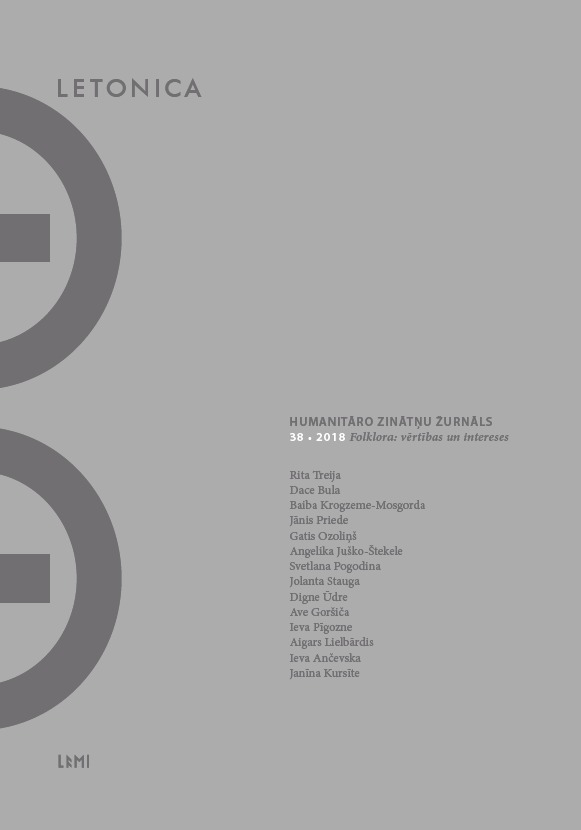Īpašuma metaforas folkloras izpratnē: ieskats jēdziena garamantas vēsturē
The Metaphors of Property in the Understanding of Folklore: Insight in the History of Term Garamantas
Author(s): Dace BulaSubject(s): Museology & Heritage Studies, Customs / Folklore, Semantics, Historical Linguistics, Comparative Linguistics
Published by: Latvijas Universitātes Literatūras, folkloras un mākslas institūts
Keywords: national terms of folklore; conceptual metaphors; National Romanticism of the 19th century; the history of folklore studies;
Summary/Abstract: Metaphors that have been used for the definitions and interpretations of folklore to characterize its values and role have already previously attracted the attention of researchers. On a global scale, more interest has been expressed in the range of tropes rooted in nature or the relationship between man and nature – biological metaphors (Hafstein 2001), agricultural metaphors (Valk 2004), organic metaphors (Handler, Linnekin 1984), which can be found in the popular as well as scientific discourse. They have been used for a variety of purposes – to highlight the authenticity and naturalness of oral forms as opposed to the “taught” culture and to popularise and make the gathering of folklore more understandable by comparing it to ordinary activities (practical, household-related). Also, they have been used to attach naturalistic features to folklore as the subject of study, which allows researching it as a subject of nature from the perspective of natural sciences. Such metaphors can also be spotted in the understanding of Latvian folklore, however these cases will only be mentioned in the article and the main attention will be drawn to other metaphors – the ones related to property (economic, legal). They are focused on the term of property (“manta” in Latvian), which in the mid-19th century became the core of the national term of folklore – tautas garamantas (people’s spiritual/intangible property). Although the history of the term has been examined previously (Bula 2000), it is important to revise the history of this definition and its more updated applications. Firstly, the term has been used for the name of the domain of the digital archive of Latvian folklore (www. garamantas.lv), and thus the term garamantas has become the identity of Latvian folklore in the virtual environment. Secondly, the active use of property metaphors in the international cultural politics must also be considered, especially the conceptualization of certain forms of culture concerning heritage, including immaterial cultural heritage, which thanks to the UNESCO initiatives now has metaphorically replaced the term of folklore (Bula, Laime 2017).
Journal: Letonica
- Issue Year: 2018
- Issue No: 38
- Page Range: 31-44
- Page Count: 14
- Language: Latvian

